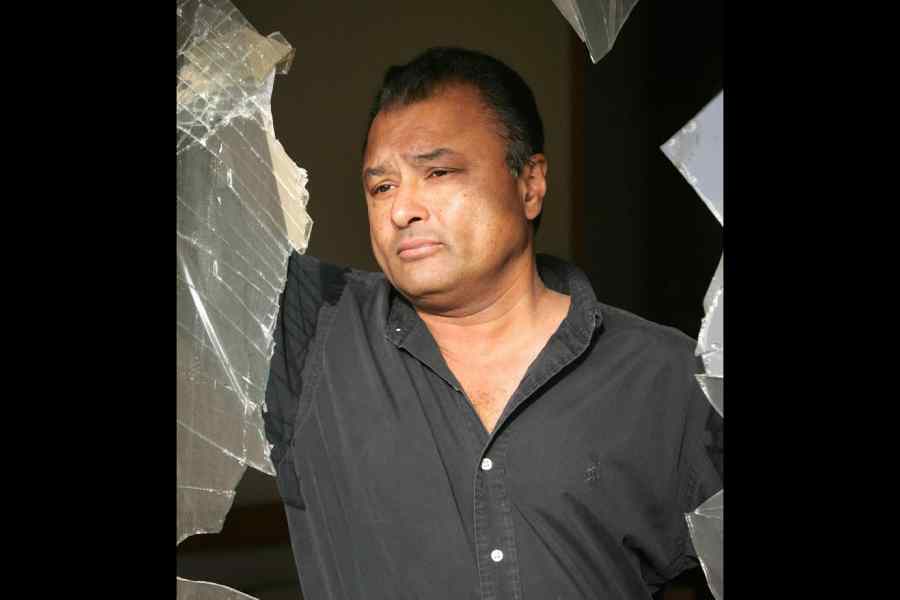One of a kind
The taxi driver taking me to Heathrow to catch a flight to Beirut asked me: “Do you know Kim Sengupta?” “Yes,” I replied. “Never mind,” he said, “if you play your cards right, you can be like Kim Sengupta one day.” The remark was amusing because, at the time, I was the blue-eyed boy of the editor of the Daily Mail, David English. Kim and I sat opposite each other in the newsroom. He would address women as “Luv”, a working-class endearment he had somehow picked up. I once heard him do a telephone interview with a woman in a pub: “Can I call you, Linda Luv? No? Why not? Oh, I see, your name isn’t Linda.”
Kim died suddenly on Tuesday, aged 68. The taxi driver was remarkably prescient. In 1996, Kim joined The Independent, where his work as a war correspondent took him to Afghanistan, Iraq, Syria, Libya, the Balkans, Ukraine, Georgia, Kosovo, Mali, Sudan, Somalia, Israel, Gaza and Northern Ireland. When the Taliban took over Afghanistan in 2021 after the American withdrawal, most Western journalists pulled out but Kim stayed behind. I sent him a message: “What’s a nice Bengali boy doing in a place like Kabul?”
Chris Blackhurst, a former editor at The Independent, said in his tribute to a journalistic legend: “In many years of working with Kim Sengupta I never came across anyone so fearless. As editor, you get to appreciate which journalists are ‘high maintenance’, constantly and painfully seeking approval and reassurance. Kim, despite the places he went, was most definitely not one of those. If he said he was going somewhere, he went there. He had an extraordinary knack for talking to anyone, be they ambassadors or generals or privates or those of an unspecified background — security services most probably — and extracting information from them. Kim really was one of a kind.”
Naipaul’s voice
Audiobooks, which people can hear while driving or cycling, have become very popular in Britain, says the actor, Raj Ghatak, who has a clear, crisp voice. He is spending most of August in a studio reading two of VS Naipaul’s books, Among the Believers: An Islamic Journey (1981), and its sequel, Beyond Belief: Islamic Excursions among the Converted Peoples (1998).
For the former book, Naipaul arrived in Teheran while I was there for the Daily Telegraph. Since he knew no one and we were staying in the same hotel, I introduced him to my contacts, including the notorious Hojatoleslam Sadeq Khalkhali, who toured Iran “commuting” life sentences to executions. The two Naipaul books are 408 and 430 pages, respectively, so the audio versions could be anything from 15 to 20 hours. “The Naipaul books are non-fiction so I won’t be using an accent,” says Ghatak. After the Trinidad-born Nobel Laureate’s death in 2018, The New York Times said that “[h]is crisp English accent had a slight Caribbean twist”, while Gabrielle Bellot referred in the Literary Hub to “the Oxbridge accent he cultivated and maintained throughout his life.”
Nostalgic reunion
“The value of friendships and old associations are priceless,” said Yusuf Hamied, 88, chairman of an Indian pharma company, who was among the 126 undergraduates who joined Christ’s College, Cambridge, in 1954. “We are in contact with 40 people from the class of 1954, and 70 years later, 14 of us are here today,” he said at a reunion lunch he hosted on July 20 at the College. “We were surrounded by the breath of people like (Charles) Darwin and (John) Milton. I feel 18 again. Let us say a prayer for those friends who are no longer with us and hope their souls rest in eternity.”
Lord Simon McDonald, the current Master of the college, gifted Hamied a framed copy of King Henry VII’s charter when God’s House, established in 1437, was refounded as Christ’s College in 1505. Of the College treasures put on display was the 1957 gold Nobel medal for chemistry won by Lord Alexander Todd, a former Master of Christ’s. He was the one who admitted Hamied to Christ’s.
Norway diary
The social and cultural activist, Sundeep Bhutoria, has given me a copy of his latest book, Norway Diary, based on the six days he spent in Oslo in 2019 to attend the Nobel Peace Prize ceremony when the Ethiopian prime minister, Abiy Ahmed Ali, was honoured. He describes Norway as a magical land of snow. Bhutoria has written engagingly about the 20,000-strong Indian diaspora in Norway’s population of 5.5 million. He mentions that “Ustad Amjad Ali Khan, India’s renowned classical sarod player, performed in 2014, the year that Kailash Satyarthi and Malala Yousafzai shared the Peace Prize”. I have also just been to Wigmore Hall in London where Khan had a memorable concert, Sarod Quintet: Three Generations, with his sons, Amaan and Ayaan, and his 11-year-old twin grandsons, Zohaan and Abeer.











